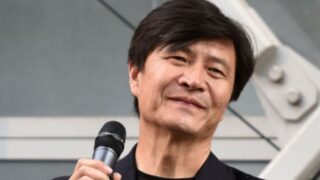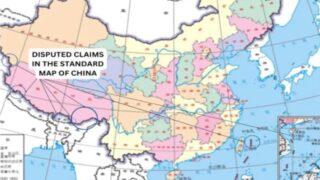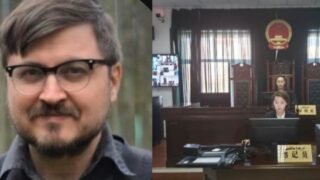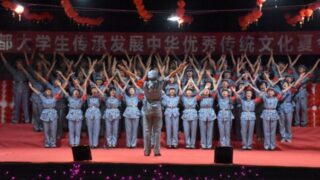Can the Uyghur genocide be the main rationale for the extension? After all, Chinese say that you should not change horses while crossing a river.
by Kok Bayraq


No political leader can claim that autocratic rule is a kind of progress or development. Instead, it is justified by real or alleged urgent needs of the state. Jiang Zemin and Wen Jiabao were two CCP leaders of the Chinese state who said that China needed fifty years to transition to a multi-party system and true democracy. They used the fact that China is a poor country with a large population as an excuse for autocracy.
Notably, under Deng Xiaoping’s leadership, the General Secretary’s time in office was set at a maximum of two terms. Some even believed that the system may gravitate toward democracy.
However, Xi Jinping has extended the General Secretary’s term into an indefinite period by overturning history at a time when China’s economic, scientific, and technological development is rapid, and the cultural awareness of its people is higher than ever before.
Xi Jinping may have done this by presenting it as an urgent need of the country, either directly or through his supporters. Of course, these “urgent reasons” may have been elaborated on at an internal level. It may be impossible for us to know exactly what was said, until Xi Jinping will fall from the throne. However, it is quite possible that we can make accurate guesses because China’s existing problems and their scales are no secret to anyone.
Let us quickly look at China’s problems. The Chinese Communist Party of today is a nationalist party, and in its recent congresses, there have been no terms such as “proletarians,” “oppressed,” “workers,” or “social justice” mentioned. There is only one goal: the revival of the Chinese nation leading to world domination. The phrase “socialism of Chinese characteristics” is essentially nothing more than protecting the status quo.
By reading international media accounts of the 20th Congress, it may seem that China’s largest problem is Taiwan, followed by the Uyghurs, Hong Kong, Tibet, and the East and South China Seas. If we look at the issue with Chinese nationalist eyes, however, the Uyghur issue ranks first. Because the issue with Taiwan is not a question of sovereignty of the land, but rather of how the land is administered; the Hong Kong and Macao issues are largely resolved; and the South and East China Seas’ issue is, even if this is not openly acknowledged, just as fictitious as the artificial islands: the CCP will be happy if its policy succeeds and will have no regret if it fails.
East Turkestan, as a “new border” (which is the literal translation of the Chinese word “Xinjiang”), is in the westernmost area, and comprises one sixth of all Chinese territory. As an adventurous people, the original owners—the Uyghurs—have never given up their fight for independence. China’s long-term ability to hold this region has always been questionable, especially from the point of view of Chinese nationalists.
In my opinion, there is only one reason that can be given as an excuse for Xi Jinping’s quest for a third term in power: the ongoing Uyghur genocide.
Why China is such in a hurry about the Uyghur “problem,” and has decided to quickly advance to a final solution?


During a conversation with my friend Erkin Ekrem, an expert at one of Turkey’s strategic think tanks, he said that “Chinese nationalists know that their country will one day transition to democracy and cannot escape from it. But there are concerns that a democratized China would give a number of political rights to non-Chinese ethnic groups there, especially the Uyghurs, and that these rights would interfere with China’s integrity.” He continued, “China wants to wipe out and/or weaken the Uyghurs from the Earth before it transitions to that democratic era, making them unable to raise their heads in a democratic China in the future.”
Haji Kutul Qadir, who teaches at Okinawa University in Japan and was participating in our conversation, had the same opinion: “The Chinese openly say in their documents that they are ‘taking advantage of the historical opportunity’ and ‘establishing long-term stability’ as a diplomatic name for the goal of ‘eliminating the Uyghurs until China transitions to democracy.’” He continued, “What they mean by ‘a historical opportunity’ is, of course, [that] the country’s dictatorial period is the period when the Communist Party was on the throne, as well as the period when China was the world’s [greatest] economic power, and the majority of countries needed China. This period will one day come to an end.” Haji Qutluq believes that “long-term stability” is a slogan aimed at building a Xinjiang without Uyghurs.
In my opinion, China has chosen its recent security measures, including concentration camps, as a final solution to the Uyghur issue. On this journey, China has prepared itself for accusations of genocide, and even some punishment for it. Thus, China is currently implementing the ultimate solution to what it regards as one of the biggest, most dangerous, and most pressing problems in its 2,000-year history, and this is being done at the behest of Xi Jinping. The saying about “not changing horses while crossing the river” is Xi Jinping’s justification for changing the rules about General Secretaries’ terms in office to suit what he wants.
The critical situation in Uyghur land is sometimes revealed in official documents. “Don’t think that ‘nothing has gone wrong’ [means that] ‘nothing will go wrong’,” a local Security Committee, far from the Uyghur region, said when introducing the political situation in the country last year. They continued, “At every moment, be sensitive, as if we are walking on thin ice. Be careful, as if walking on the edge of an abyss.” The non-literal translation of this sentence is: “We are conducting genocide against some groups in our country, and we should hide it from the world to prevent international involvement,” as Xi Jinping’s “thought on diplomacy” teaches.


In another official document , Chen Hong (陈宏), a professor at Xinjiang Uyghur Autonomous Region Party School, has stated that, “At present, Xinjiang has entered a critical period …and decisive stage for winning the battle … Xi Jinping’s thought not only tells us that we must ‘cross a river,’ but also guides us in constructing ‘bridges and boats’ to get us across.”
According to the dictator’s philosophy, you cannot change leaders in mid-crisis. A hypothetical successor of Xi may not have the lack of conscience needed to continue detaining more than three million people in camps and ignoring torture and death. Such a successor may be unable to bear the serious criticisms from the international community and may stop the genocide, thus crushing the dreams that Chinese nationalists have had for 2,000 years. “No mercy” to Uyghurs is Xi Jinping’s slogan, and he has demonstrated to be brutal enough to reach such a genocidal goal.
Yes, China is now crossing a river—of blood. Xi Jinping’s is hiding the Uyghur genocide to construct “bridges and boats,” i.e., international support from friendly countries, to complete it. The CCP has decided to not change horses during this “historical” journey.









